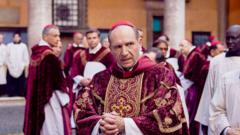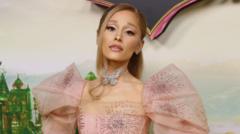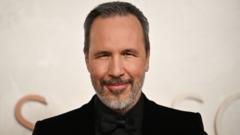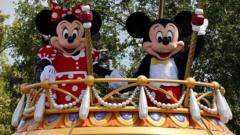As the film Conclave hits the spotlight, it offers audiences an engaging look into the rarely discussed world of papal elections. Released in 2024, the movie has gained both box office success and critical acclaim, particularly for its portrayal of the complexities surrounding the election of a new pope, set against the backdrop of the Vatican's secrecy.
The film is timely, coinciding with the upcoming papal conclave on May 7, when 134 cardinals will convene in the iconic Sistine Chapel. Here, behind the renowned Michelangelo artwork, these cardinals will seek to elect a successor to Pope Francis, a task that remains shrouded in mystery until the unmistakable white smoke signals the election of a new spiritual leader.
Adapted from Robert Harris's best-selling novel, Conclave presents a vivid depiction of the isolated environment within the Vatican during deliberations. The cardinal-electors adhere to a traditional practice of self-imposed seclusion, striving to eliminate outside influences during this crucial election process. Experts, like theology professor Stephen Bullivant, note that while they maintain some connection to the outside world for sustenance, the isolation emphasizes the gravity of their responsibilities.
The film powerfully conveys an atmosphere of utmost introspection, with Anna Rowlands from the University of Durham emphasizing the overturning of modern expectations around transparency in favor of a more inward focus during these pivotal moments. "It's an intense responsibility," she notes, illustrating the great weight of decisions that will irreversibly shape the future of the Church.
In Conclave, the audience witnesses a whirlwind of political maneuvering as cardinals negotiate allegiances and advance their own proposals, a reflection of what experts predict will unfold in reality. Tina Beattie, a Catholic studies professor, suggests that extensive behind-the-scenes negotiations precede the official voting process, echoing the film's depiction of complex relationships and strategies.
One remarkable narrative arc in the film involves the rise of an unexpected candidate, a twist not realized in actual papal elections where only established cardinals are eligible to vote. However, the upcoming conclave could be particularly unpredictable given the composition of about 80% of the cardinals who have been appointed by Pope Francis in the last decade from a diverse range of backgrounds, providing a unique blend of perspectives and priorities.
Director Edward Berger highlights the human side of these cardinal leaders, debunking the perception of papal elections as purely spiritual events. By showing them as fallible individuals, grappling with contemporary issues, the film brings forth the human complexities intertwined with their roles, capturing elements of ambition, fear, and vulnerability.
Conclave, therefore, serves not only as a cinematic interpretation of a sacred ritual but also as a reflection of humanity's intricate nature intertwined with spirituality - a convergence of divine purpose and innate human experiences, characterized by life’s array of emotions.




















